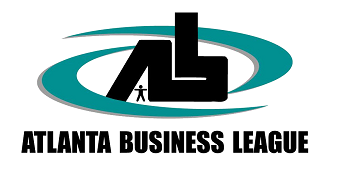How Outsourcing Mortgage Closing Support Enhances Productivity
In the dynamic landscape of the mortgage industry, enhancing productivity is a perpetual goal. Mortgage closing, a critical phase in loan processing, demands meticulous attention to detail and adherence to stringent timelines. Recognizing the challenges faced by financial institutions, many have turned to outsource mortgage closing support to specialized service providers. This strategic move is proving to be a game-changer, offering substantial improvements in efficiency and overall productivity.
The Landscape of Mortgage Industry Productivity
In a competitive financial environment, staying ahead of the curve is crucial. Mortgage lenders are under constant pressure to streamline operations without compromising accuracy. According to industry statistics, the average time to close a mortgage loan in 2021 was around 51 days. This lengthy process often results in increased operational costs, hampering the overall efficiency of mortgage providers.
Reducing Turnaround Time: A Critical Imperative
One of the primary advantages of outsourcing mortgage closing support is the significant reduction in turnaround time. Efficient mortgage assistance providers leverage streamlined processes and advanced technologies to expedite the closing process. This not only enhances client satisfaction but also allows financial institutions to capitalize on a quicker loan cycle. Shortening the loan closing duration directly correlates with increased productivity, a critical metric in the competitive mortgage market.
Precision in Documentation: Mitigating Errors
Accuracy in mortgage documentation is paramount. Errors in paperwork not only result in costly delays but can also lead to legal complications. Outsourcing mortgage closing support to expert service providers ensures a meticulous review of all documents, reducing the risk of inaccuracies. Industry studies indicate that mortgage lenders face substantial costs due to document-related errors, making precision in documentation a key factor in enhancing overall productivity.
Navigating Regulatory Compliance Challenges
The mortgage industry is governed by a myriad of regulations, with compliance being a constant challenge. Outsourcing mortgage closing support to specialists means entrusting the responsibility to teams well-versed in regulatory nuances. This proactive approach minimizes the risk of compliance-related issues, allowing mortgage lenders to focus on core operations. A survey revealed that 56% of mortgage professionals considered regulatory compliance as the most significant challenge in their day-to-day operations.
Scalability and Flexibility: Meeting Market Demands
The mortgage market is subject to fluctuations, and adapting to varying workloads is essential. Outsourcing mortgage closing services offers scalability and flexibility, enabling financial institutions to handle peak periods seamlessly. This ensures that mortgage lenders can maintain optimal productivity levels regardless of market dynamics, without the need for extensive in-house resources.
Cost-Efficiency: Maximizing Resources
In-house mortgage closing operations often entail significant costs, including salaries, benefits, and overhead expenses. Outsourcing presents a cost-efficient alternative, as it allows financial institutions to pay for services rendered without the burden of fixed operational costs. A comparative analysis indicates that outsourcing mortgage closing support can result in substantial cost savings, contributing directly to improved productivity.
Why Choose Outsourcing for Mortgage Closing Services?
Outsourcing mortgage closing services to expert mortgage assistance providers emerges as the most strategic choice for mortgage lenders. The benefits are multifaceted, addressing various pain points faced by financial institutions.
1. Expertise and Specialization:
Specialized mortgage assistance providers bring industry-specific expertise to the table. Their teams are well-versed in the intricacies of mortgage closing, ensuring a high level of accuracy and efficiency. By leveraging this expertise, mortgage lenders can enhance their overall productivity and deliver superior service to clients.
2. Advanced Technology Integration:
Outsourcing partners often invest in cutting-edge technologies to streamline processes. This includes automation tools, document management systems, and advanced analytics. The integration of such technologies enhances the efficiency of mortgage closing operations, reducing manual efforts and minimizing errors.
3. Focus on Core Competencies:
Mortgage lenders can redirect their focus and resources towards core business functions by outsourcing non-core activities like mortgage closing. This allows for strategic decision-making, innovation, and improved customer engagement – all contributing to heightened productivity and sustained growth.
4. Mitigation of Operational Risks:
The mortgage industry is not without its risks, be it operational, legal, or compliance-related. Outsourcing to experts in mortgage closing services mitigates these risks by leveraging their experience and commitment to regulatory compliance. This proactive risk management approach safeguards the reputation and financial stability of mortgage lenders.
Conclusion:
Outsourcing mortgage closing support emerges as a powerful strategy to enhance productivity in the competitive mortgage industry. By reducing turnaround time, ensuring precision in documentation, navigating regulatory challenges, and offering scalability, outsourcing becomes a catalyst for increased efficiency. Mortgage lenders can maximize resources, cut costs, and benefit from specialized expertise, ultimately positioning themselves as industry leaders in an ever-evolving market.



